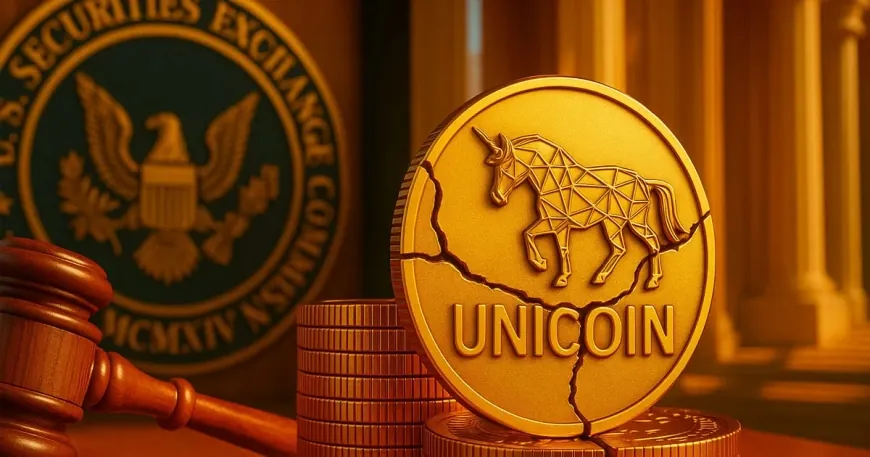Crypto Firm Unicoin CEO Seeks to Dismiss $100M SEC Lawsuit
Crypto firm Unicoin to file motion dismissing SEC’s $100M lawsuit; CEO Alex Konanykhin claims charges are false and block company IPO.

New York — Crypto company Unicoin plans to file a motion to dismiss the U.S. Securities and Exchange Commission (SEC) lawsuit that accuses the firm and its top executives of misleading investors and raising over $100 million under false pretenses. The motion, set to be filed today, challenges the SEC’s allegations and defends the company’s compliance and transparency practices.
The SEC’s complaint, filed in May, claims that Unicoin overstated the value of real estate holdings in Argentina, Antigua, Thailand, and the Bahamas, which were purportedly backing its token. Regulators also allege that CEO Alex Konanykhin and other executives misrepresented the company’s financial position while marketing “Unicoin Rights Certificates,” and that some sales involved investors who were not accredited.
Unicoin counters that all property deals were supported by binding contracts, and that the SEC misinterpreted contractual commitments as completed transactions. The company emphasizes that marketing materials included risk warnings alongside growth projections, and that it voluntarily filed disclosures, published audited financial statements, and limited participation to accredited investors.
Konanykhin criticized the SEC’s approach, claiming it was politically motivated. He referenced former SEC Chair Gary Gensler, alleging that the agency deliberately blocked Unicoin’s planned NYSE listing to undermine crypto initiatives. According to Konanykhin, the SEC issued a wave of subpoenas in May 2024 targeting investors, brokers, auditors, and vendors, disrupting the company’s operations. He also stated that prior investigations by the SEC found no violations, and described the current lawsuit as a “fabrication of charges.”
The dispute centers on several high-profile deals. In 2023, Unicoin announced a $335 million agreement to acquire a luxury resort in Thailand, with payment planned in Unicoins at 140% of the appraised property value. The SEC claims these deals were overstated, but Unicoin argues that ownership transfer was always intended to occur post-ICO, which was delayed due to regulatory actions.
Legal experts caution that Unicoin faces a challenging path. Katherine Reilly, partner at Pryor Cashman and former federal prosecutor, noted that the case aligns with traditional securities fraud allegations, including misrepresentation of asset backing and company finances. While the current U.S. administration has signaled support for crypto entrepreneurship, Reilly said, judges in the Southern District of New York may still prioritize strict enforcement of securities law.
Unicoin insists that the lawsuit has blocked investor gains and delayed corporate growth, estimating that the company could be worth $25 billion today if not for regulatory interventions. Konanykhin also claimed that the SEC’s action has inflicted financial harm on 8,000 investors, and vowed to pursue a vigorous legal defense.
The court ruling on Unicoin’s motion to dismiss will decide whether the SEC can hold crypto firms accountable for the claims they make about real-world assets backing their tokens. A loss for Unicoin would likely trigger closer scrutiny of token sales and stricter enforcement of disclosure rules, affecting other crypto companies planning asset-backed offerings. A win, however, would give firms a clearer path to raise funds and issue tokens while staying within legal boundaries. Analysts and investors are watching closely, as the decision could influence how cryptocurrency-backed securities are structured and marketed across the United States.
Also Read: Trump-Backed WLFI Token Launch Faces Investor Risk Warnings






























































